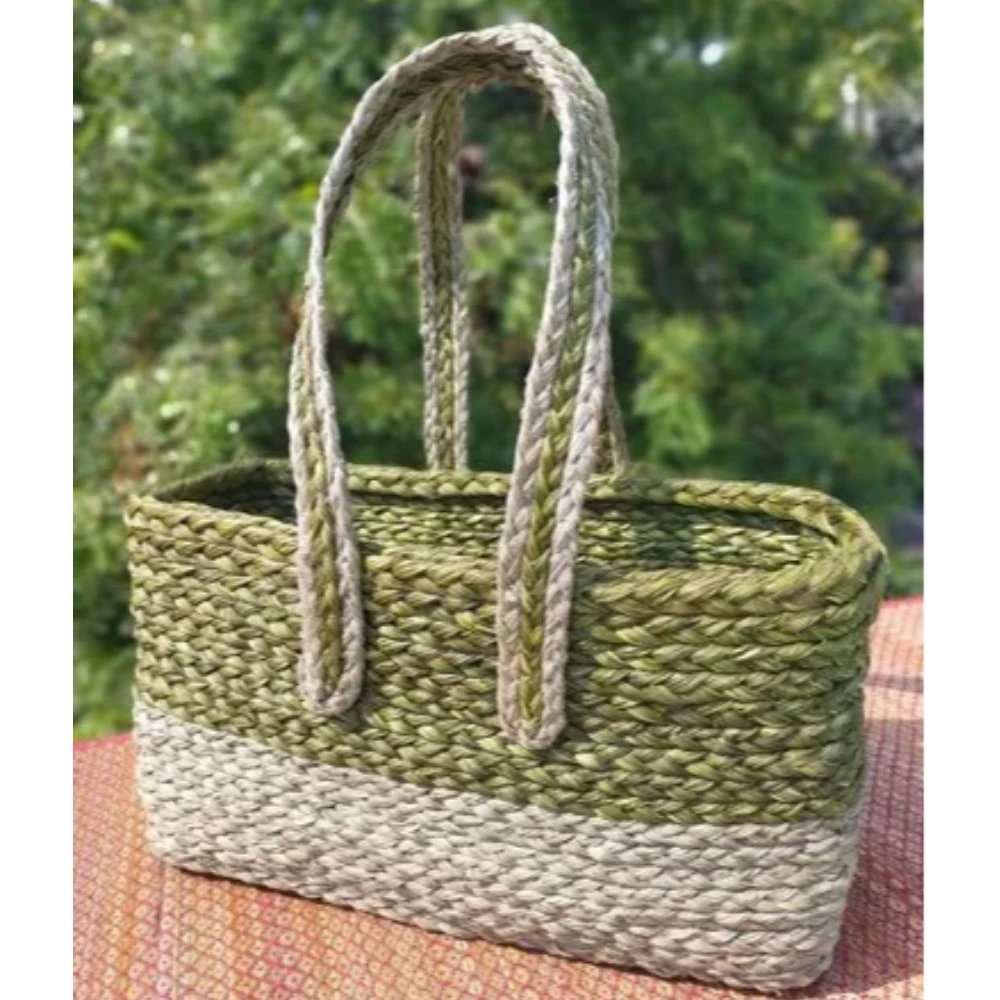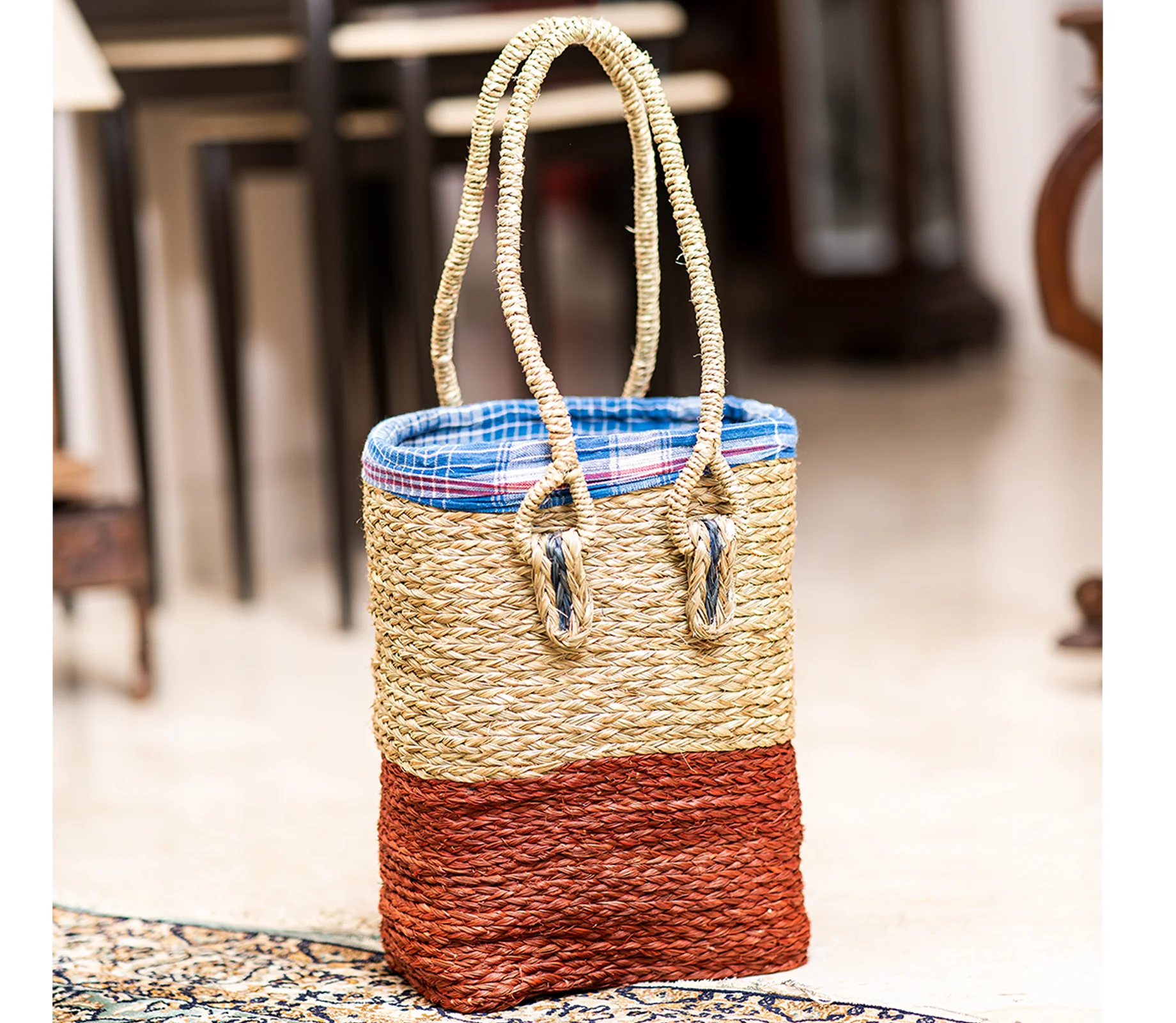Handwoven Light Green Sabai Grass Bag
₹1,249.0
– Made up of Sabai Grass
– Color Green & Natural Sabai Grass
– Safe with food and are completely handcrafted
– Light in weight and gives an artistic appearance
– It’s completely biodegradable as it is made from the grass itself
– This grass naturally grows in our home state and it is strong and durable too
– Eco Friendly and sustainable
- Description
- Additional information
- Reviews (0)
- Q & A
- Sustainability Remark
- More Offers
- Store Policies
- Inquiries
| Material | Sabai Grass Products |
|---|
You must be logged in to post a review.
Q & A
Sabai grass products are generally considered sustainable due to several reasons:
Renewable Resource: Sabai grass (Eulaliopsis binata) is a fast-growing perennial grass native to South Asia. It has a high growth rate and can be harvested multiple times in a year, making it a renewable resource. This ensures a constant supply of raw material for the production of Sabai grass products without depleting the natural environment.
Low Environmental Impact: Sabai grass is traditionally grown in rural areas without the use of chemical fertilizers or pesticides. Its cultivation practices are generally eco-friendly, reducing the environmental impact compared to intensive agricultural practices. Minimal water usage and no harmful chemical runoff contribute to its low carbon footprint.
Biodegradability: Sabai grass products are often handmade and do not involve synthetic materials or harmful chemicals. As a result, they are biodegradable and can naturally decompose over time without polluting the environment or leaving behind toxic residues.
Economic Empowerment: The production of Sabai grass products often takes place in rural communities, providing employment opportunities and income generation for local artisans and weavers. This helps in promoting sustainable livelihoods and reducing poverty in these areas.
Traditional Knowledge Preservation: Sabai grass products are often made using traditional weaving techniques passed down through generations. By supporting the production and use of these products, the traditional knowledge and skills of rural communities are preserved, fostering cultural sustainability.
However, it's important to note that the sustainability of Sabai grass products can vary depending on various factors, such as the specific production practices, transportation, and overall supply chain management. It's crucial for producers and consumers to prioritize sustainable practices throughout the entire lifecycle of these products to maximize their positive environmental and social impact.
General Inquiries
There are no inquiries yet.




Reviews
There are no reviews yet.